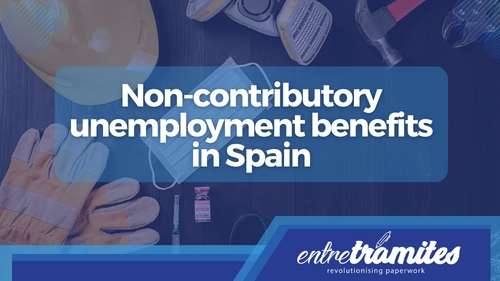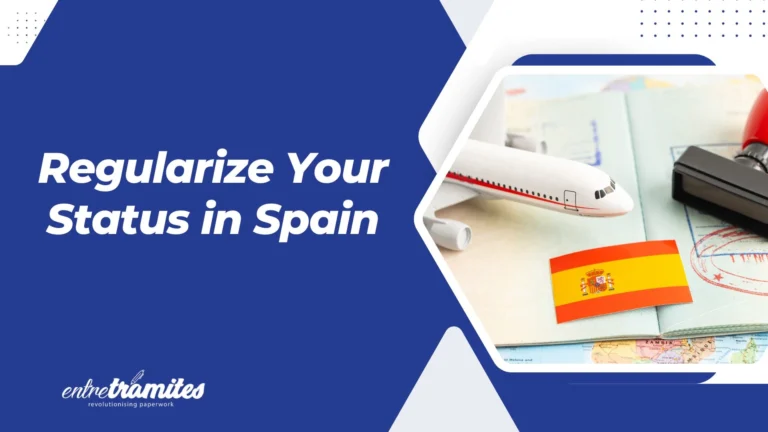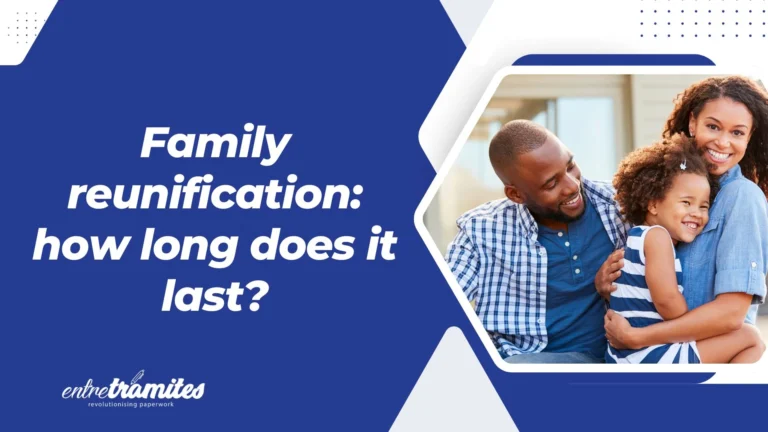There are eight types of unemployment benefits (“subsidios por desempleo”). We explain the requirements for each one of them and how to apply for them step by step.
Unemployment benefit (non-contributory benefit)
All subsidies are welfare payments. These are granted to people registered as job seekers and with a lack of income. In this respect, they differ from the contributory benefit (unemployment benefit given for at least one year of contributions), to which anyone who has paid contributions is entitled, regardless of their level of income.
It is considered that the individuals who can apply for a non-contributory benefit are those that, being involuntarily unemployed, do not have their own income exceeding 712.50 euros per month (75% of the Minimum Wage in 2020). In addition, most of these benefits also require that the family unit of the person requesting the benefit also does not exceed this limit on average for each member. The family unit is formed by the applicant, their spouse, and children under the age of 26 who live together and are financially dependent.
In addition to the lack of income, each benefit has its specific requirements, which we will explain below.
How much can I collect in unemployment benefits in 2020?
The total amount that is received through this benefit is of 430.27 euros per month (80% of the IPREM) and the duration of the benefit varies from case to case.
Another feature of this benefit is that they are regulated in the General Law of Social Securityl (LGSS), which guarantees them and provides stability.
Unemployment benefits are always applied for to the State Public Employment Service (SEPE, formerly INEM), by making an appointment at their offices, both to request them and to receive information about it. There is also an official form to request them. In addition, one of the requirements to apply for any of the benefits is to be registered as a job seeker, i.e., registered as unemployed (or “Paro”).
There are eight types of unemployment benefits
There are different types of non-contributory benefits depending on the personal circumstances of the person applying for assistance (contributions, age, family responsibilities, benefits that have been expended, etc.).
Below we briefly describe the different types of these non-contributory benefits. Each one has its own link to consult your specific guide, in which we include all the essential information: official brochures, forms, regulations, requirements, etc.
The benefit for insufficient contributions
It is also known as a “job loss subsidy” or “mini-subsidy”.
It is an aid for those who lose their job and do not have accumulated the 360 days of contributions that are required as a minimum to apply for the contributory benefit (“Paro”). If the person who is unemployed has family responsibilities (spouse or dependent children under 26), 3 months of contribution will suffice to be able to request this subsidy. If you do not have family responsibilities, you need to accumulate at least 6 months of contributions.
Family aid
“Family aid” is the colloquial name by which this benefit is known. Technically it is called “unemployment benefit with family responsibilities due to the exhaustion of the contributory benefit”.”
This aid is for those who have family responsibilities (spouse or dependent children under 26), lack income, and have just exhausted the contributory benefit (unemployment for having worked for more than a year) without having been able to find a job. This benefit can be extended from 18 to 30 months, depending on each case.
The benefit for people over 45
It is an aid for those who have exhausted the contributory unemployment benefit, lack income (as in all benefits), are 45 or older and have no family responsibilities, because if they had them, they would ask for the family aid benefit. This aid is sometimes confused with the RAI (The Spanish Active Insertion Income) for over 45, but they are not the same thing.
This benefit has a maximum duration of 6 months.
The benefit for people over 52 years old (and before 55)
This is a financial aid that is granted until retirement for those who have reached 52 years of age and meet certain contribution requirements in order to have an ordinary retirement (i.e. they have 15 years of retirement contributions and in them, have at least 2 years in the last 15 and 6 with unemployment contributions in the general regime). This benefit’s amount is 430.27 euros per month (like in all of the other benefits), but this specific aid has the particularity that it is the only one that contributes to retirement so the SEPE enters every month the contribution of the worker who is collecting this aid.
It is a benefit that more than 350,000 people receive.
Benefit for returned emigrants
It is aimed at people returning to Spain after having worked in countries without a bilateral unemployment agreement with Spain or that do not belong to the European Economic Area.
Benefit for released prisoners
This is a benefit for released prisoners who have served a sentence of more than 6 months and who are not entitled to other benefits or subsidies.
Benefit for the reexamination of a disability pension
It is assistance for people with no income who, due to the improvement of an illness, have a permanent disability withdrawn and lack an income.
Benefit for agricultural workers
It is a specific benefit for occasional agricultural workers in Andalusia and Extremadura.
Aids other than unemployment benefits
Special grants: RAI and the new SED subsidy
They are known as “extraordinary aids” which can be requested as a last resort when it is not possible to request either the contributory benefit (unemployment for having worked 360 or more days) or any of the non-contributory benefits.
The main extraordinary aid, in force since 2006, is the Active Insertion Income (RAI). It is an aid of 431 euros per month up to three annuities, for groups with particular difficulties of access to the job market: long-term unemployed over 45 years, victims of gender violence, returned emigrants, and unemployed people with disabilities. It has a specific regulation.
Insertion Income of the Autonomous Communities
All the Autonomous Communities have, by means of the Social Services, their own insertion income, which is the financial assistance aimed at people with a lack of income and who do not have unemployment benefits as a requirement, but other social assistance criteria such as income, number of members of the family unit, risk of social exclusion, etc.
Let’s talk!
We want to listen to you and know what your questions are about the procedures you have to carry out. Count on the advice of our experts to clarify all your doubts.
In Entre Trámites we invite you to know about all our consultation services. Fill in our contact form and we will call you to help you as soon as possible, schedule your online consultation, or just text our Whatsapp.
You may also be interested in:





